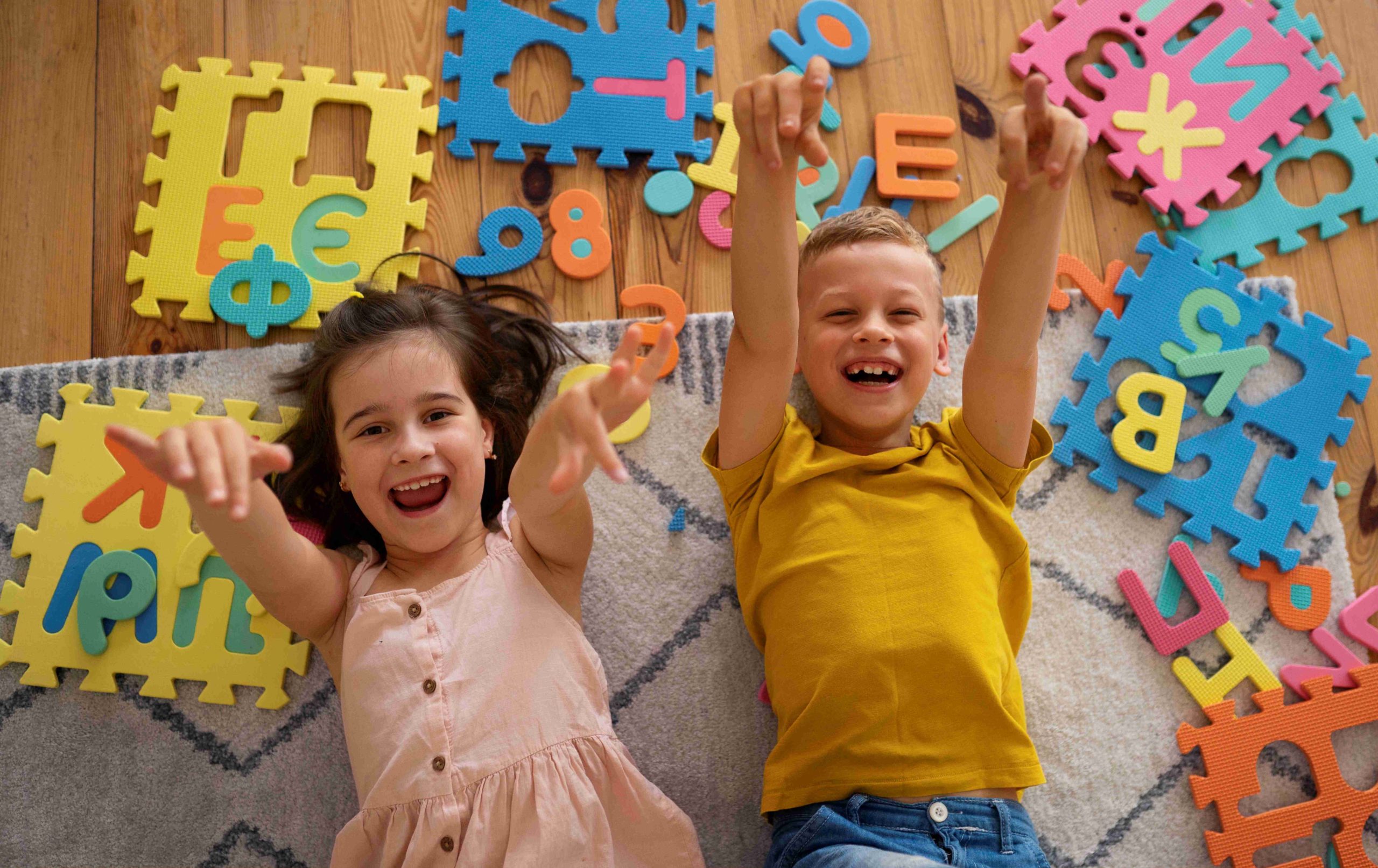In the diverse landscape of education, it’s clear that one approach doesn’t fit all. Traditional classroom settings, characterized by desks and routine worksheets, may work for some learners, but many children flourish under a more dynamic, hands-on educational style.
Play and learning should be engaging and enjoyable, not just routine. Balancing structured education with playful activities is key to supporting young learners’ growth. Including diverse, creative activities in your child’s daily routine not only keeps them interested but also fosters their cognitive development. In today’s article, we’ll explore the impact of creative play based learning on the developing brain.
Engaging Minds Through Play and Learning
Education should be dynamic and engaging. Finding the right mix of structured learning through playful discovery is essential for a child’s cognitive growth. Integrating creative activities and games into daily routines builds a solid base for their ongoing play and learning, and brain development. This approach not only enriches their knowledge but also nurtures their imagination and problem-solving skills.
The Role of Creative Play in Brain Development
The human brain experiences remarkable growth after birth, particularly during the early developmental years through to the early twenties. During this pivotal phase, creative play plays a crucial role in fostering the development of neural connections. These connections are essential for enhancing gross motor skills, such as running and jumping, as well as fine motor skills, including writing and precise hand movements. This developmental aspect remains significant through adolescence and even adulthood, particularly influencing the frontal lobe, crucial for planning and decision-making.
Enhancing Intelligence, Learning, and Memory Through Play
Recent research, including a study in the npj science of learning, shows that creative play, like Montessori education, enhances children’s semantic memory and creative thinking, leading to more flexible thought processes. This flexibility is linked to better performance in creative thinking tests. Additional studies indicate activities such as pretend play and molding with play dough in children aged 6 to 7 significantly boost creativity and divergent thinking, crucial for problem-solving and cognitive development. These findings emphasize the importance of playful and imaginative activities in shaping a child’s cognitive abilities.
Unleashing Creativity and Imagination
Creativity, the art of ‘make-believe’, takes our thoughts on exciting journeys to new places. Encouraging children to imagine not only boosts their artistic creativity but also sparks innovation across different areas, leading to new ideas and solutions. This skill in thinking imaginatively is key to developing their ability to solve problems and think critically, skills that are essential in today’s ever-changing world.
Creative Play and Executive Function Development
Executive functions, governed largely by the brain’s frontal lobe, encompass skills like planning, time management, and emotional regulation. Creative play directly exercises these functions, which are crucial for self-discipline and control. Children with well-developed executive functions tend to excel academically, socially, and in decision-making.
Influence on Cognitive Development
Research indicates that pretend play based learning is crucial for children’s social development. A University of Miami study, spearheaded by Doris Bergin, demonstrates a link between creative play and enhanced cognitive skills. The study reveals that a lack of playtime can impede the children’s social development skills, problem-solving abilities, and academic achievements in key areas like math, science, and literacy. Moreover, it emphasizes that children who engage in play based learning with their parents benefit significantly in various developmental aspects.
- Exhibited greater levels of cognitive ability and imagination compared to children who did not play with their parents.
- Developed stronger friendships, positive mental health, and experienced a stronger family connection compared to children who did not play with their parents.
Nurturing your child’s creativity can be simple and affordable. Transforming everyday items, like a cardboard box into a make-believe spaceship, opens up a world of imaginative play and learning. If you’re looking for more ways to boost your child’s cognitive growth and learning potential, we can help. At the Brain Workshop, our team of educational professionals provides tailored advice and support in fostering your child’s creative development. Contact us today to learn more.







